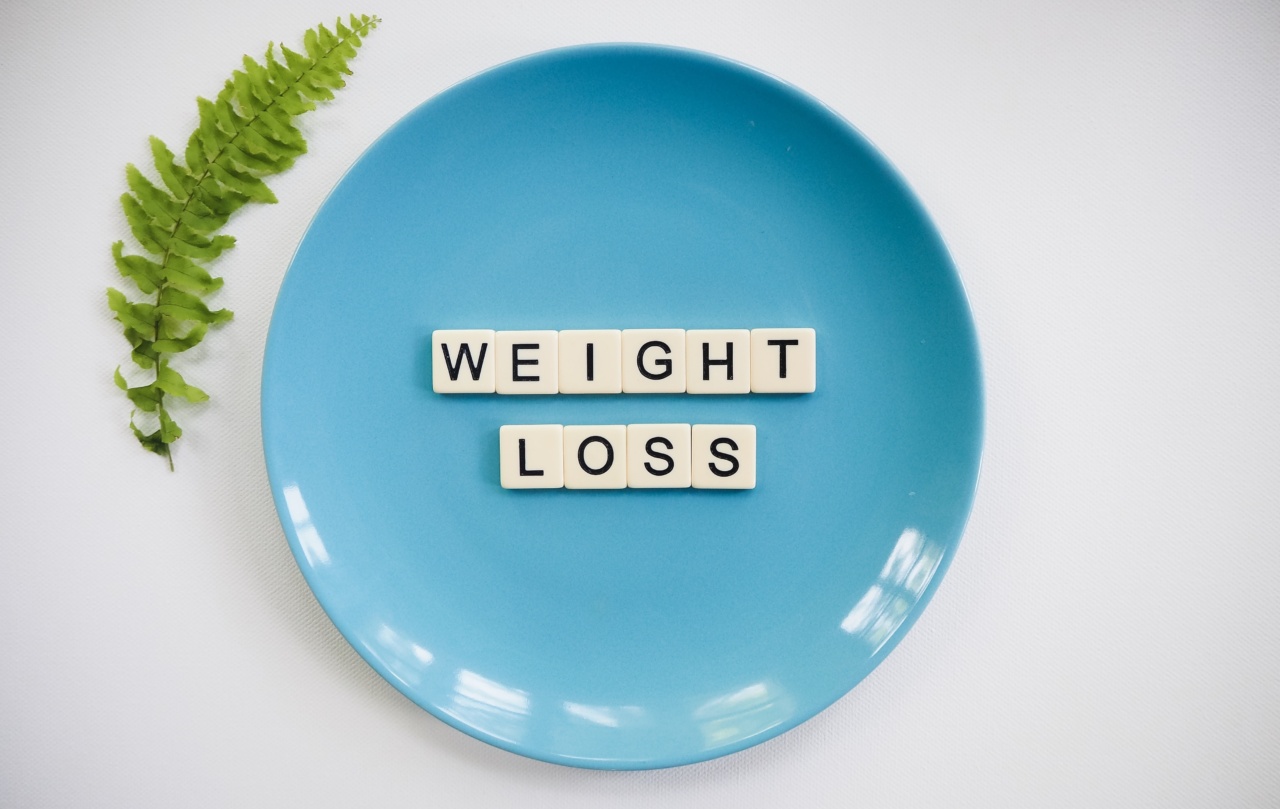Many people embark on a diet with the primary goal of losing weight. However, it can be frustrating and disheartening when despite sticking to a strict diet, the desired weight loss doesn’t occur.
There could be several reasons why your diet isn’t helping you shed those extra pounds. In this article, we will explore some of the common factors that may be inhibiting your weight loss progress and provide tips on how to overcome them.
1. Unbalanced Macronutrient Ratio
A common mistake is failing to maintain a balanced macronutrient ratio in your diet. While reducing overall calorie intake is essential for weight loss, the distribution of those calories is equally important.
Your diet should ideally include a balance of carbohydrates, proteins, and healthy fats.
Carbohydrates provide energy, so completely cutting them out can leave you feeling lethargic and fatigued. On the other hand, excessive consumption of carbs can lead to weight gain.
Opt for complex carbohydrates found in whole grains, fruits, and vegetables instead of simple carbohydrates like refined sugar.
Proteins are crucial for muscle repair and growth. They also provide satiety, which helps curb hunger cravings. Incorporate lean sources of protein such as poultry, fish, tofu, beans, and legumes into your meals.
Healthy fats are necessary for hormone production and aiding the absorption of fat-soluble vitamins. Include sources of unsaturated fats like avocados, nuts, seeds, and olive oil in moderation.
2. Inaccurate Calorie Counting
Weight loss depends on creating a calorie deficit, which means consuming fewer calories than your body needs. However, inaccurate calorie counting can hinder your progress.
It’s crucial to track your caloric intake accurately by using food scales, measuring cups, or smartphone apps specifically designed for this purpose. Hidden calories in dressings, sauces, and beverages can easily add up and sabotage your weight loss efforts.
Avoid relying solely on estimation or generic information as each individual’s calorie requirements may vary. Consult a registered dietitian or nutritionist to get personalized guidance on your calorie needs.
3. Lack of Portion Control
Even if you are consuming a healthy, balanced diet, portion control plays a significant role in weight loss. Eating too much of even the healthiest foods can lead to weight gain.
Be mindful of portion sizes and use smaller plates and bowls to help control your portions.
Additionally, it’s essential to listen to your body’s hunger and fullness cues. Avoid eating when you are not truly hungry and stop eating when you feel satisfied rather than completely full.
4. Sedentary Lifestyle
A lack of physical activity can impede weight loss progress, even if you are following a well-balanced diet. Engaging in regular exercise not only helps burn calories but also boosts metabolism, increases muscle mass, and improves overall health.
Include a combination of cardiovascular exercises like walking, jogging, cycling, or swimming along with strength training activities to build lean muscle mass.
Aim for at least 150 minutes of moderate-intensity aerobic activity or 75 minutes of vigorous aerobic activity per week, along with two or more days of strength training.
5. Insufficient Water Intake
Water is often underestimated when it comes to weight loss. Staying hydrated is essential for proper bodily functions and can also aid in weight loss.
Drinking water before meals can help reduce calorie intake by creating a feeling of fullness and preventing overeating.
Ensure you are consuming an adequate amount of water throughout the day, aiming for at least 8 cups (64 ounces) or more depending on your activity level and climate.
6. Lack of Sleep
Sleep deprivation affects hormone regulation, increases appetite, and can lead to weight gain.
When you don’t get enough sleep, your body produces higher levels of ghrelin, a hormone that stimulates hunger, and lower levels of leptin, a hormone that signals satiety.
Make sleep a priority and aim for 7-9 hours of quality sleep every night. Establish a regular sleep schedule and create a calming bedtime routine to improve your sleep habits.
7. Excessive Stress
Chronic stress can trigger emotional eating and cause an increase in the production of cortisol, a stress hormone associated with weight gain and increased abdominal fat storage.
Find healthy stress management techniques that work for you, such as exercise, meditation, deep breathing exercises, or engaging in hobbies. Prioritize self-care and make time for relaxation to help mitigate stress levels.
8. Medical Issues
If you’ve tried numerous diets and haven’t seen any progress, it’s crucial to consult with a healthcare professional.
There may be underlying medical conditions, such as hormonal imbalances or thyroid disorders, that are hindering your weight loss efforts.
A qualified healthcare provider can assess your overall health and conduct the necessary tests to identify any underlying medical issues that need to be addressed.
9. Unrealistic Expectations
Weight loss is a gradual process that requires consistency and patience. Setting unrealistic expectations can lead to disappointment and frustration, derailing your progress.
Understand that sustainable weight loss is usually 1-2 pounds per week. Focus on adopting healthy habits and making long-term lifestyle changes rather than obsessing over rapid weight loss.
10. Lack of Accountability and Support
Embarking on a weight loss journey can be challenging, and having a support system in place can greatly contribute to your success. Surround yourself with like-minded individuals who are also striving to maintain a healthy lifestyle.
Consider joining online forums, support groups, or finding a workout buddy who can help keep you motivated and accountable. Celebrate your achievements, no matter how small, and seek support when faced with obstacles.





























